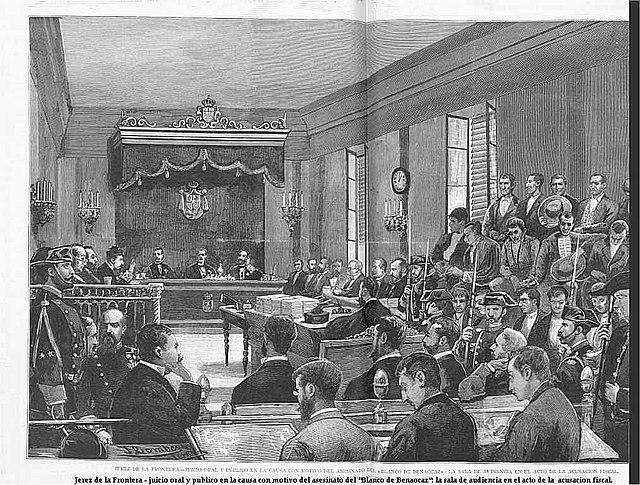Rafael Farga i Pellicer was a Catalan anarcho-syndicalist who led the establishment of the Spanish Regional Federation of the IWA (FRE-AIT). As a print worker, he became involved in the Barcelona workers' movement following the Glorious Revolution of 1868, when he was first introduced to anarchism by the Italian anarchist Giuseppe Fanelli. He then set about organising the Catalan workers' movement along anarchist lines, emphasising decentralisation and federalism, eventually affiliating the FRE-AIT with Mikhail Bakunin's Anti-Authoritarian International. He then came to uphold the precepts of anarcho-syndicalism, overseeing the establishment of the FRE-AIT's successor, the Federation of Workers of the Spanish Region (FTRE). Later in life, he lost interest in syndicalist organising and turned to journalism, penning a series of studies of political figures and movements of the 19th century.
Rafael Farga i Pellicer c. 1880
Federation of Workers of the Spanish Region
The Federation of Workers of the Spanish Region was a Spanish anarchist organization founded in the Barcelona Workers' Congress of 1881 by the initiative of a group of Catalan anarcho-syndicalists headed Josep Llunas i Pujals, Rafael Farga Pellicer and Antoni Pellicer, after the dissolution of the Spanish Regional Federation of the International Workingmen's Association founded in the Barcelona Workers' Congress of 1870. It only had seven years of life since it was dissolved in 1888. Its failure, in which the episode of La Mano Negra was key, opened a new stage in the history of anarchism in Spain dominated by propaganda of the deed.
Rafael Farga Pellicer, one of the main promoters of the FTRE.
Vineyards in Jerez de la Frontera. In the FTRE, unlike its predecessor FRE-AIT, the federations that grouped Andalusian day laborers predominated.
Trial held in 1883 in Jerez de la Frontera for the murder of Blanco de Benaocaz, attributed to La Mano Negra.
Workers of a Catalan textile factory




